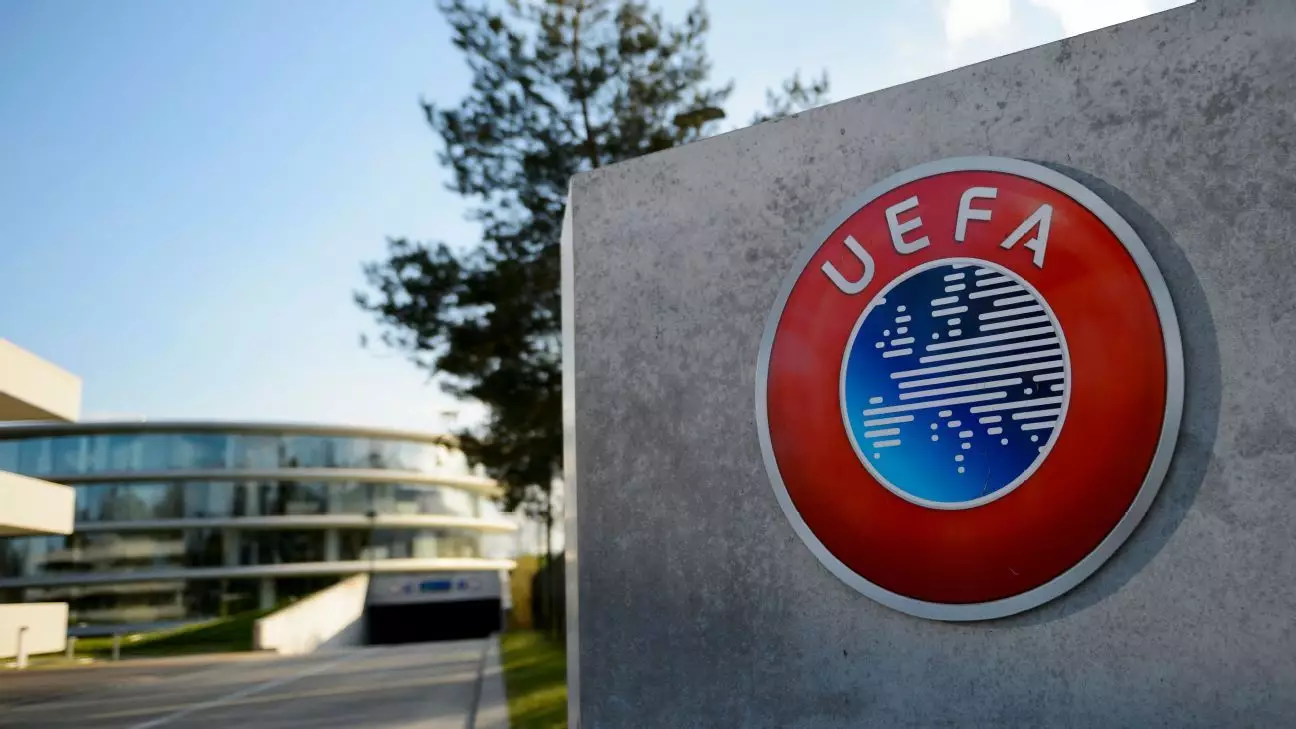In a decisive move that underscores the increasingly scrutinized financial landscape of European football, UEFA has levied hefty penalties on some of the continent’s most prominent clubs, most notably Chelsea and Barcelona. These sanctions are more than mere fines—they represent a broader effort by UEFA to enforce financial discipline amidst the glamour, high-stakes transfers, and record-breaking revenues that characterize modern football. While the clubs’ on-field success often captures headlines, their financial practices are coming under sharper inspection, revealing a game of economic resilience and regulatory compliance that could rewrite the future of club management.
Chelsea’s fine, totaling €31 million, shatters previous records and exemplifies UEFA’s resolve to curb reckless spending. The London club faced accusations of violating financial fair play (FFP) rules, notably failing to approach the required break-even point and exceeding spending limits on player wages and transfers. Although Chelsea claims to have worked transparently with UEFA—highlighting their upward financial trajectory and commitment to rectifying past infractions—the magnitude of their penalty indicates a growing intolerance for overspending in pursuit of competitive dominance. The club’s recent history, marked by a significant property sale and lavish transfers under Todd Boehly’s ownership, underscores the tension between commercial ambition and fiscal responsibility.
Barcelona’s €15 million fine, rooted in their excessive losses, reveals a more persistent struggle for financial stability despite their on-field brilliance. The Catalan giants, renowned for developing some of football’s most celebrated talents, are also battling systemic issues related to overspending and revenue mismanagement. UEFA’s complex evaluations suggest that if they qualify for European tournaments, more penalties may be forthcoming—placing the club’s immediate future under financial and sporting scrutiny. Such measures serve as a warning: even a storied club like Barcelona cannot escape the strict oversight introduced to promote sustainability across the league.
The Larger Implications for European Football’s Financial Ecosystem
The fines against Chelsea and Barcelona mark a pivotal moment in UEFA’s ongoing crackdown on financial misconduct. They demonstrate an evolution from reactive punishment to a proactive stance emphasizing long-term stability. For years, clubs have operated in a fantasyland where revenues from broadcasting, sponsorships, and merchandising seemed boundless, often leading to reckless deficits that threaten the overall health of the sport. Now, UEFA is signaling that such a culture of excess cannot continue unchecked—especially when the industry’s financial model hinges on balancing books just as much as winning matches.
This renewed emphasis on fiscal discipline could recalibrate club strategies, encouraging a more sustainable approach that emphasizes internal revenue generation, prudent investments, and transparency. The repercussions extend beyond immediate fines: clubs that fail to meet financial targets risk future sanctions, including disqualification from competitions—a potent deterrent in an era where lucrative tournaments are vital to financial survival. Such measures could foster a healthier, more competitive environment where success is based on both sporting merit and financial prudence.
The penalties also expose the uneven playing field that exists behind the scenes. Wealthier clubs have historically leveraged their financial muscle to dominate Europe’s elite competitions, often by circumventing regulations or navigating complex financial arrangements. UEFA’s action advocates for a level playing field, but it also raises questions about enforcement consistency and whether financial restrictions will be enough to curb the most entrenched excesses in the sport. Nonetheless, the move signals a profound shift: one where financial integrity is becoming a core expectation for clubs that aspire to compete at the highest levels.
The Future of Club Ownership and Financial Strategy
Ownership models such as Chelsea’s under Boehly and the financial structure of clubs like Barcelona are now under intense scrutiny. The case of Chelsea, with its recent property deals and high-profile spending, exemplifies how modern clubs are often caught between commercial ambitions and regulatory boundaries. The fine and ongoing investigation into their property transactions reflect an awareness that financial missteps, even if legal at the moment, can lead to sanctions that threaten their competitive ambitions.
Similarly, Barcelona’s struggles demonstrate that even football’s most venerable institutions are vulnerable when managing debt and revenue streams. The club’s ongoing efforts to stabilize finances will likely be shaped by UEFA’s strict oversight, pushing them to evolve from risky, high-profile spending to more sustainable models emphasizing income growth and cost containment. These cases could serve as catalysts for a broader shift across the industry—where clubs prioritize long-term stability over short-term glory, recognizing that modern football is as much about smart financial management as it is about winning trophies.
The ongoing investigations, fines, and future conditional sanctions serve as a stark reminder: the days of unchecked spending and financial exuberance are numbered. Clubs that wish to maintain their dominance must now navigate a landscape increasingly governed by transparency, regulation, and discipline—lessons that the sport’s wealthiest are unlikely to ignore for long. The era of financially reckless football is giving way to a new chapter where economic reward and responsible governance go hand in hand, shaping a more resilient future for European football.


Leave a Reply